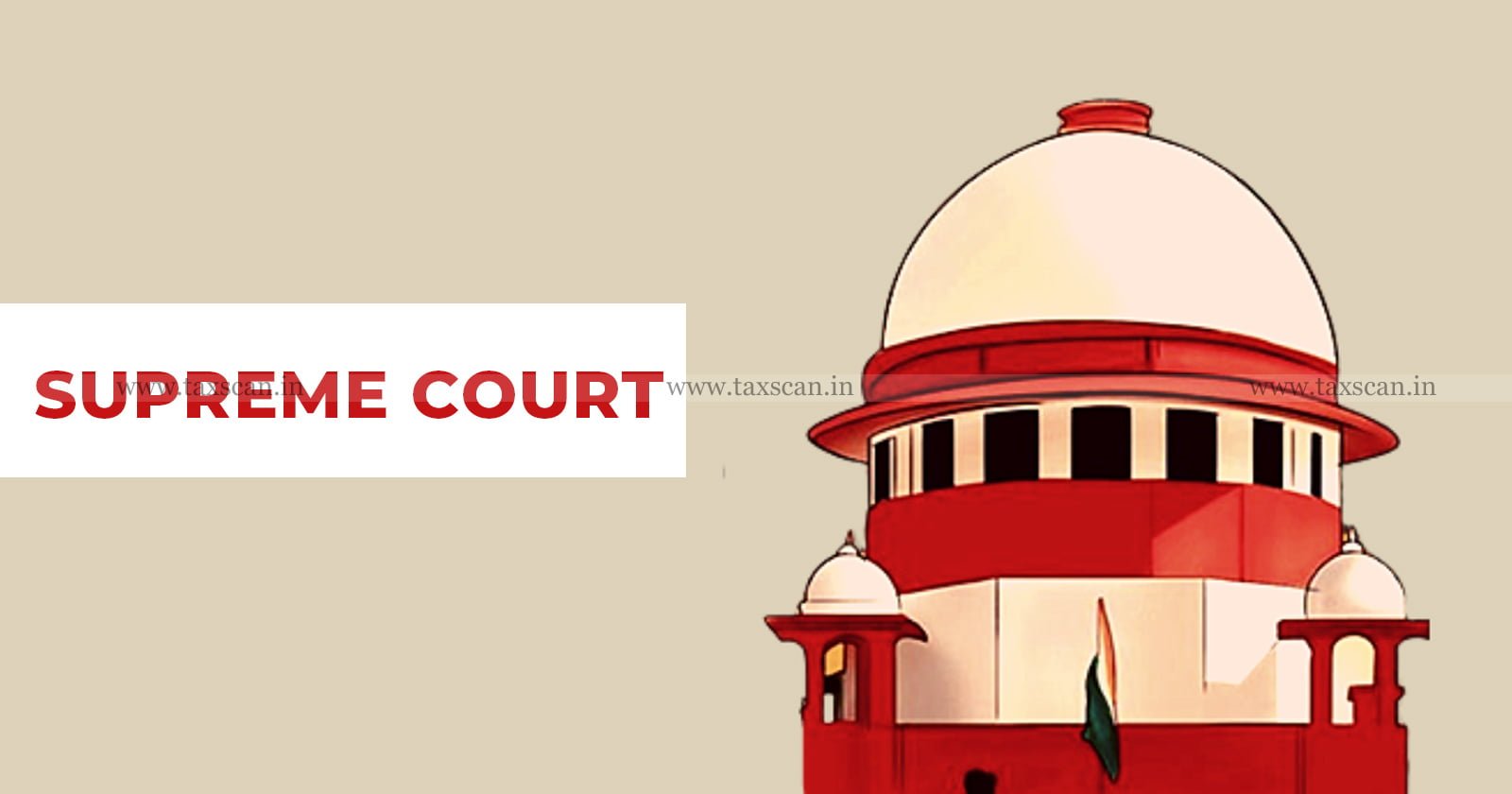VAT Exemption Only for Goods Produced in Same State is Discriminatory: Supreme Court Quashes Notification Violating Art. 304(a) [Read Judgement]
The Apex Court struck down Rajasthan’s 2007 VAT exemption for asbestos sheets as unconstitutional discrimination under Article 304(a)
![VAT Exemption Only for Goods Produced in Same State is Discriminatory: Supreme Court Quashes Notification Violating Art. 304(a) [Read Judgement] VAT Exemption Only for Goods Produced in Same State is Discriminatory: Supreme Court Quashes Notification Violating Art. 304(a) [Read Judgement]](https://images.taxscan.in/h-upload/2025/09/25/2090953-vat-exemption-only-goods-produced-state-is-discriminatory-supreme-court-notification-violating-taxscan.webp)
The Supreme Court recently struck down a notification issued by the Government of Rajasthan under Section 8(3) of the Rajasthan VAT Act, 2003, which granted Value Added Tax (VAT) exemption exclusively to asbestos cement sheets and bricks that were manufactured within the State.
The Supreme Court held that Notification No. S.O.377 dated 09.03.2007 was discriminatory and violative of Article 304(a) of the Constitution of India , as it created a fiscal barrier against identical goods that were manufactured outside Rajasthan.
The decision was given against a number of appeals filed by M/s U.P. Asbestos Limited and M/s Everest Industries Limited, challenging orders of the Rajasthan High Court that had upheld the validity of the impugned notification.
The High Court had dismissed writ petitions filed by the appellants, following the reasons in its earlier decision in Hyderabad Industries Ltd. vs. State of Rajasthan (2007), which paid heed to the State’s justification on granting exemption to a special class of items for a limited period on specific conditions when there are justifiable and national reasons for differentiation. Aggrieved, this present appeal was instituted by the appellants.
Dr. Manish Singhvi appearing on behalf of the State of Rajasthan defended the notification, arguing that it was issued to encourage industries to set up within the State to utilise the abundant raw material of fly ash, reduce environmental hazards and promote industrialisation.
He submitted that the exemption was in the nature of permissible differentiation rather than discrimination, and placed reliance on precedents such as Video Electronics Pvt. Ltd. vs. State of Punjab (1989) and Shree Digvijay Cement Co. Ltd. vs. State of Rajasthan (1999).
 Also Read: Centre moves Supreme Court in Mineral Rights Case, files Curative Petition against Verdict
Also Read: Centre moves Supreme Court in Mineral Rights Case, files Curative Petition against Verdict
Before the Supreme Court, Nikhil Goel appeared for U.P. Asbestos Ltd. and Kavita Jha for Everest Industries Ltd. It was argued that the impugned notification was innately unconstitutional as it violated the principle of non-discrimination enshrined in Article 304(a).
It was submitted that the exemption did not require procurement of fly ash from Rajasthan, opposing the State’s justification that the measure was to promote use of local fly ash. The counsels contended that the notification amounted to hostile discrimination by favouring manufacturers located within Rajasthan.
The Bench of Justice B.V. Nagarathna along with Justice K.V. Viswanathan examined the scheme of Articles 301 to 304 of the Constitution, the relevance of the precedents cited and the scope of permissible tax exemptions.
The Court noted that while States may frame fiscal policies to promote industries, such measures cannot result in hostile discrimination against goods manufactured outside the State. The apex court further observed that the notification did not explicitly mandate the use of fly ash sourced from Rajasthan, the Court held that the exemption was extended purely on the basis of the place of manufacture, thereby offending Article 304(a).
The Court emphasized that taxation cannot be used as a weapon to create fiscal barriers. It reiterated that States are free to design fiscal legislations to equalise tax burdens on local and imported goods, but they cannot discriminate between the two classes without valid justification. Applying this principle, the Court concluded that the notification was unconstitutional.
 Also Read: Handling Export Cargo falls within the ambit of “Taxable Services”: Supreme Court Dismisses Airports Authority's Appeal [Read Judgement]
Also Read: Handling Export Cargo falls within the ambit of “Taxable Services”: Supreme Court Dismisses Airports Authority's Appeal [Read Judgement]
Accordingly the Supreme Court allowed the appeals and set aside the impugned order of the Rajasthan High Court and quashed the notification as violative of Article 304(a).
Support our journalism by subscribing to Taxscan premium. Follow us on Telegram for quick updates


